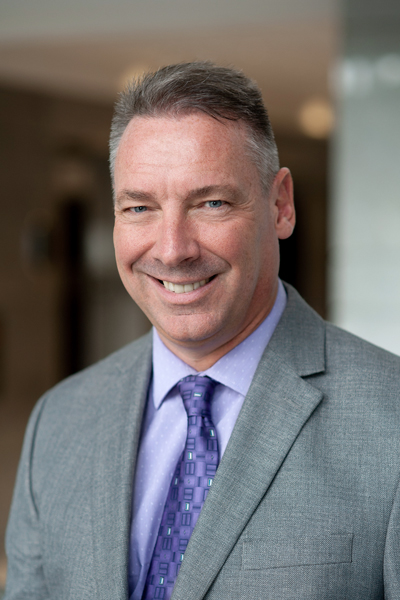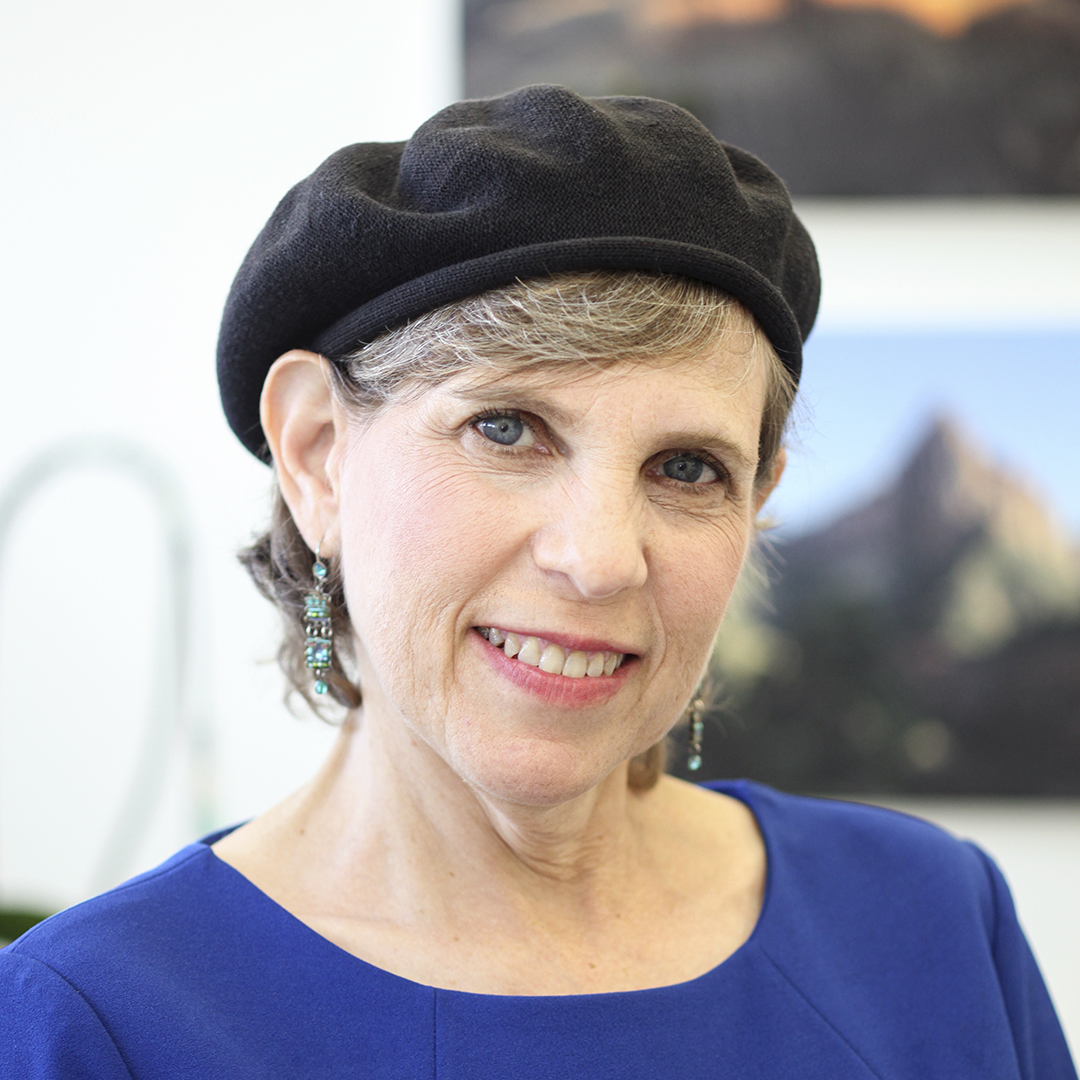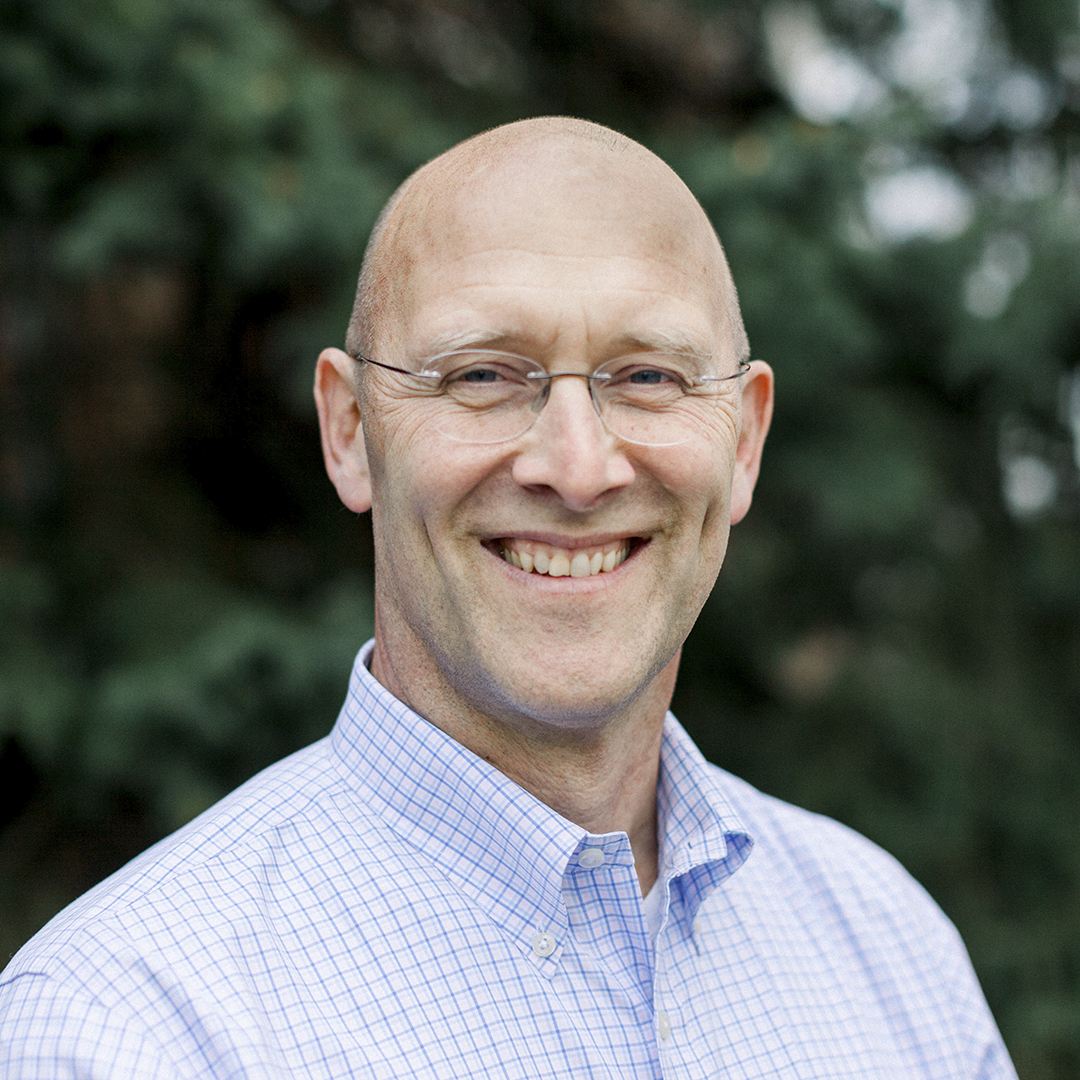As the senior vice president of cancer informatics at Tampa-based Inspirata Inc., even conveying the complexities of Dr. Trevor Heritage’s jobs and background could quickly devolve into a series of system-specific language and hyper-complex technological explanations that would make sense to very few outside of his field. But the SVP has a personal connection to his work that allows him to speak at a more general level that connects him to the broader population.

“I think most families will, at some point, be impacted by cancer,” Heritage says. “If it’s not an immediate family member, everyone knows someone who has been touched by this.”
For Heritage, the impact came when a friend’s daughter was diagnosed with terminal brain cancer. The diagnosis seemed incompatible with the progress of science up to that point. “The medical world was only able to offer as much comfort to the family and their daughter as they could,” Heritage explains. “They also made clear that the family would simply have to wait for a new therapy to come along.”
Unwilling to accept the limits of the diagnosis, Heritage’s friend sought to explore new therapies and potential treatments emerging from the biotech industry as well as from clinical trials. Heritage was able to provide insights and guidance around what medical information the family was entitled to and help identify potential new therapies that might benefit the young girl.
“My view of complete care is that we want to put more information into the hands of patients,” Heritage says. “It enables them to be better informed about their diagnosis and prognosis and, if they are sufficiently motivated, they can start to explore treatment alternatives that might make more sense for them.”
That’s where Inspirata comes in. Heritage has recruited and trained a highly diverse team of software engineers, data engineers, data modelers, and informatics experts, as well as clinical medical specialists whose collaboration is required to work for more patient transparency and technology integration, maintaining compliance with HIPAA and other mandated regulations while also still able to achieve Inspirata’s mission: uniting disparate and complex data throughout the entire cancer care journey to drive more informed decisions that improve outcomes and survivorship.
Heritage didn’t start his career in healthcare. He began it at Shell, acting as a bench chemist as well as working in agrochemicals and materials research, tasked with finding ways to better inform the research of catalysts, lubricants, and downstream production at scale of those chemicals. Heritage says it was one of the more foundational roles in his career: “In every position since then, I’ve always gone back to thinking about how it’s not simply the end result of a process, it’s about capturing everything that you learned or have the potential to learn along the way.”
Then, at Symyx Technologies, Heritage pioneered what he calls the electronic lab environment—think of it as a cockpit for chemists and scientists to have broader, real-time insights to all devices and tools involved in a production process, giving them far better ability to intervene and optimize a drug-manufacturing process.
The SVP wouldn’t become fully healthcare focused until 2012, when he joined St. Louis-based Appistry, working to better inform clinicians on how genomics had the capability to positively impact their decision-making. “At this particular time, the world of genomics was far removed from the day-to-day of clinicians who would have to select the right genes to test, get it ordered, reimbursed, and interpret the results. It was too much to expect,” Heritage explains. He was tasked with identifying meaningful tests for any particular disease and helping guide clinicians on how to interpret results and how to act on the findings in a clinical setting.
“In every position since then, I’ve always gone back to thinking about how it’s not simply the end result of a process, it’s about capturing everything that you learned or have the potential to learn along the way.”
That experience brought Heritage to Inspirata. Heritage says one of his biggest challenges involves navigating business associate agreements, maintaining and protecting patient information and confidentiality that often create challenges for the company working to create more transparency and fluidity between clinicians, patients, and the cancer treatment journey.
Inspirata’s mission is multifaceted. Transparency can mean simply providing a patient with therapy options that, given a specific diagnosis, can let them choose to opt for better quality of life. “Oncologists may be given a patient with a diagnosis that has three or four precision medicine- or immune- therapies that might be appropriate,” Heritage explains. “The patient may care more about how it affects their day-to-day lifestyle and their ability to spend quality time with their family. We’re trying to bring more information to clinicians’ fingertips that can show the patient different attributes of potential therapies and they can then have a conversation about their preference for treatment.” In short, extending life shouldn’t be the only consideration given to such a complex issue.
Another area Heritage is set on addressing is what he calls the “depressingly low” percentage of patients who are found to be a match for clinical trials. “It’s somewhere around three percent and even lower when you are looking at African-American or Latino populations,” Heritage says. “Imagine a system where as soon as a diagnosis is made, you can match them to trials they might be eligible for and, more importantly, once you’ve done that matching, you can alert the oncologist to this potential before the patient receives another line of treatment.”
For a numbers guy, Heritage retains a very human connection to the role that Inspirata plays in combating cancer. As science and medicine continue to confront the all-too-familiar diagnoses, Heritage says Inspirata will continue to be on the front lines of connecting clinicians, patients, and all who are involved in working to eradicate the disease.


